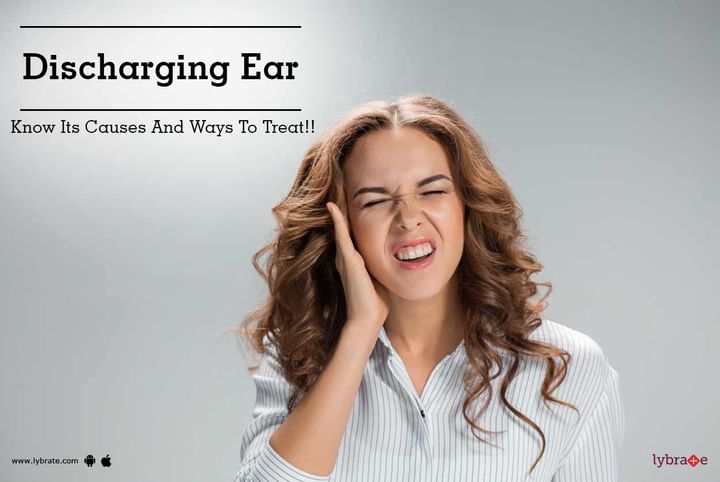Discharging Ear - Know Its Causes And Ways To Treat!
Ear discharge may occur due to several reasons. Injury or trauma to the ear canal, a ruptured ear drum or an infection in the middle ear may be the most common causes of ear discharge. Eczema, swimmer’s ear and other skin irritations may also lead to this problem.
It is a common phenomenon in children and adults alike. Most ear infection results in discharge from the ear. This ear discharge is medically known as otorrhea, and it is any fluid that comes out of the ear, mainly in the form of pus.
Causes
1. Most of the time, any fluid leaking out of an ear is ear wax.
2. A ruptured eardrum can cause a white, slightly bloody, or yellow discharge from the ear. Dry crusted material on a child's pillow is often a sign of a ruptured eardrum. The eardrum may also bleed. Causes of a ruptured eardrum include:
- Foreign object in the ear canal
- Injury from a blow to the head, foreign object, very loud noises, or sudden pressure changes (such as in airplanes)
- Inserting cotton-tipped swabs or other small objects into the ear
- Middle ear infection
- Other causes of ear discharge include:
3. Eczema and other skin irritations in the ear canal
4. Swimmer's ear -- with symptoms such as itching, scaling, a red or moist ear canal, and pain that increases when you move the earlobe
Treatment
While there are some simple home remedies to treat this disorder, always consult an ENT specialist if the discharge does not stop after the application of those treatments. Let us look at some common ways to treat this disorder.
- Ear Drops: There are antibiotic ear drops, and there are antiseptic ear drops. Antibiotic ear drop will dry your ear and stop the discharge in your ear. It mainly kills the bacteria that have caused the infection. There are certain side-effects of using antibiotic ear drops, which include dizziness, itching in the ear, earache or yeast infection. However, these side-effects are extremely mild and go away as soon as you stop using the antibiotic drops. The antiseptic ear drops are not as effective as the antibiotic ear drops, and hence, these aren’t used that much to treat any infection.
- Antibiotic Tablets: Antibiotic tablets are also an option to treat ear infections, but again these are not that effective as the antibiotic ear drops have proven to be.
- Surgical procedures: An operation called myringoplasty or tympanoplasty is conducted to repair the hole in your eardrum which has been discharging the pus. This operation has a greater chance to improve your hearing abilities. Doctors resort to this option only when your infection cannot be treated by ear drops.
When to Contact a Medical Professional
Call your health care provider if:
- The discharge is white, yellow, clear, or bloody.
- The discharge has lasted more than 5 days.
- The discharge is the result of an injury.
- There is a loss of hearing.
- There is severe pain.
- The discharge is associated with other symptoms, such as fever or headache.
- There is redness or swelling coming out of the ear canal.
In case you have a concern or query you can always consult an expert & get answers to your questions!



+1.svg)
